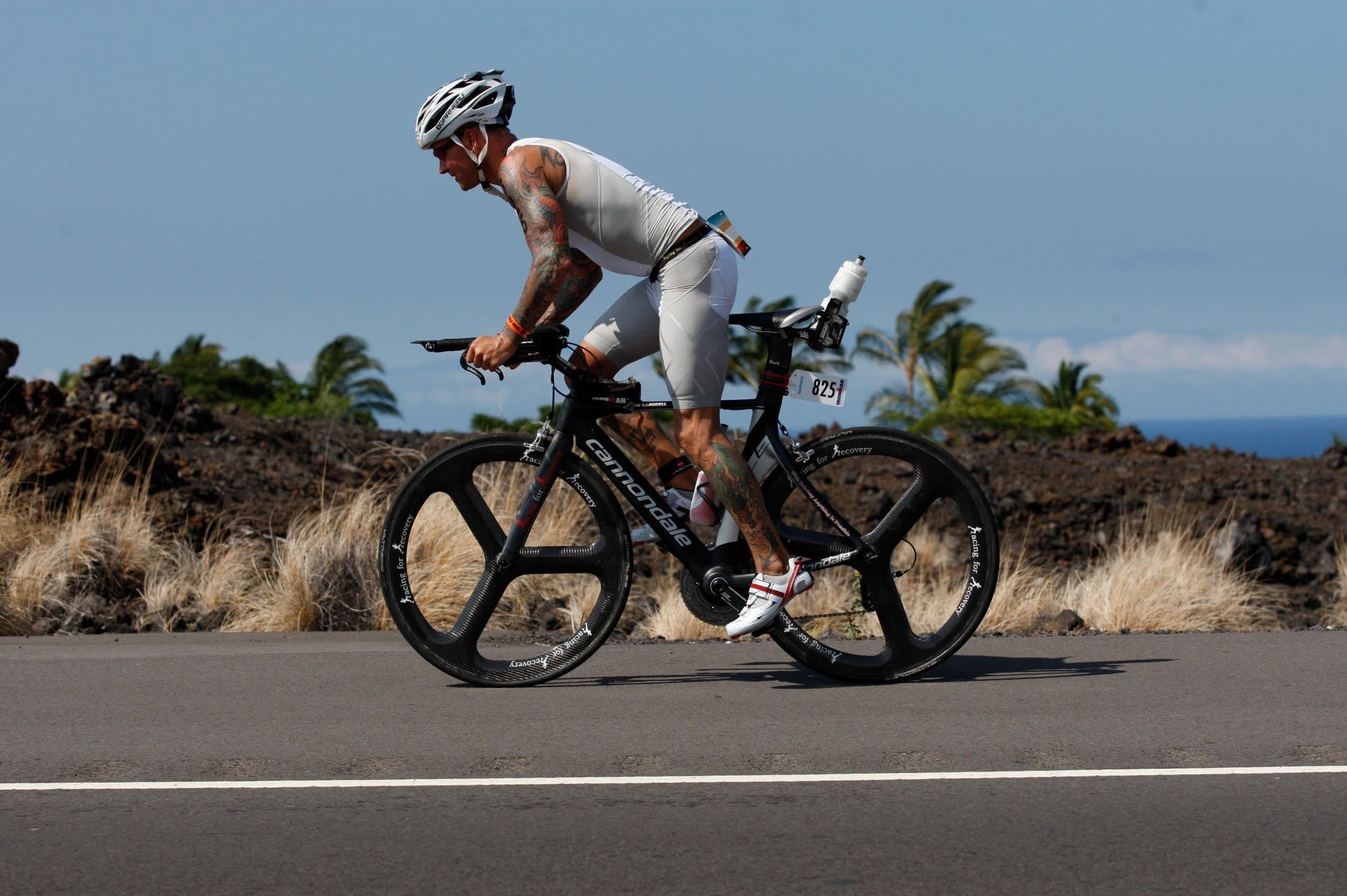At 50 years old, Todd Crandell is high on life.
The extreme triathlete has crossed the finish line in 28 Ironmans, 42 half Ironmans and two Ultramans.
With every mile, he runs, bikes and swims farther away from the life he once lived. A time when he wished he was dead.
“Every single day, the first thought in my mind was ‘How much of this drug and alcohol abuse is it gonna take to kill me?'” Crandell recalled. “And then it was, ‘I got to keep going again today to find more drugs to block myself out, mentally and emotionally.'”
The trouble started when his mom committed suicide when he was just 3 1/2 years old. She ended her life after a similar struggle with drugs and alcohol, he said.
His mother’s death led Crandell down a road to self-destruction.
“When I was growing up, I felt abandoned. I felt angry, depressed,” he told CNN. “I constantly felt like I was an outsider even within my own family.”
Crandell took his first sip of alcohol at age 13.
“For the next 13 years, I was a full-blown alcoholic, cocaine, heroin, crack … anything I could get my hands on,” he said. “And I just figured I’d end up the way my mom did.”
Crandell realized he had a problem at 19 when he was homeless in Florida. But it would take several more years for him to hit rock bottom at age 26.
“My turning point was literally getting a third drunk-driving charge at noon where I registered a .36 on a breathalyzer,” he said. “And that’s when I decided to turn my life around.”
The day he quit, he quit cold turkey.
Crandell attended recovery meetings, but it was exercise that helped him the most. Naturally athletic, Crandell was a star hockey player before he was kicked off his high school team for doing drugs.
“The first thing I did in my sobriety was go back to the one thing that was good in my life — and that was exercise,” he said.
It helped him deal with depression and wanting to use drugs again.
“Not only was my body improving, but my mind, my spirit and my emotions were getting better as well,” he added. “And that’s what led me to start running and doing Ironmans.”
Crandell, who lives in Sylvania, Ohio, was interested in the race while he was still an addict.
“I remember watching the Ironman triathlon on TV with a mirror full of cocaine and other drugs in front of me and thinking I’d like to do that someday,” he said.
So he traded his addiction for determination, and retrained his body to regain what he had lost. Six years into his recovery, he completed his first Ironman — a grueling 2.4-mile swim, 112-mile bike ride and 26.2-mile marathon.
“The response to me doing the Ironman was so overwhelming from police officers that had arrested me, former hockey coaches I had, people I did drugs with, family members. They all couldn’t believe what I was doing with my sobriety,” he said.
Racing for Recovery
Changing his own life was the catalyst for Crandell wanting to help others.
Now married and a father of four, he was inspired to start the nonprofit Racing for Recovery in 2001 after a local newspaper ran a story about him.
“I thought I can do something with my life experiences both good and bad to help other people,” he said.
The organization offers individual counseling, an intensive outpatient program and support group meetings for addicts, their families and the community. It’s designed to be an alternative to other recovery programs, with a focus on fitness and health.
Crandell, who went back to school after getting sober, also is a licensed professional clinical counselor.
“I’m helping other addicts to show them what can be done when you’re not doing drugs,” he said.
Stephen Kime, 25, of Ohio is a recovering addict, who went through the program.
“I would drink until I was blacked out and that’s when I would say I was drunk. Anything before that I wasn’t drunk,” he said. “We would be doing ecstasy, acid, cocaine.”
Stephen’s mom, Debbie Kime, was desperate to reach her son.
“I knew especially towards the end that if we didn’t get help for him, he would be dead,” she said.
After spending time in jail, Stephen finally turned his life around.
“I could relate to Todd. He understood. He got it,” he said. “I’ve been sober now for two years.”
Crandell said his mission is to provide hope for other addicts.
“I ruined what could have been a hockey career, but now looking back that wasn’t my destiny,” he said. “My destiny was to survive addiction and do what I’m doing today.”
Crandell has already signed up for his 29th Ironman in Colorado in 2018 — a race he now completes for himself and others.
“The greatest gift you can ever have is to simply give what has been given to you and have it help someone else,” he said. “That’s worth a million dollars to me.”



